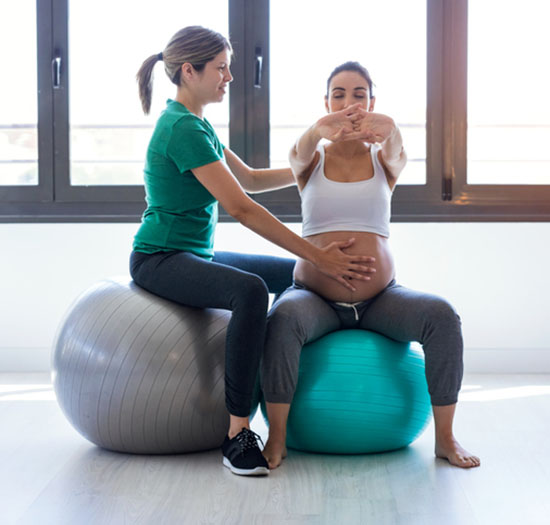Common ailments during pregnancy and postpartum periods can be addressed and alleviated through physical therapy

Everyone has pelvic floor muscles. When working correctly, they help support the pelvic organs, control your bladder and bowels, and allow sexual appreciation. When they are not working as they should be, this is called pelvic floor dysfunction.
Pelvic floor dysfunction has many symptoms. Some of these include:
• Urinary or bowel incontinence
• Urinary frequency
• Urinary or bowel urgency
• Incomplete or difficulty voiding
• Constipation
• Pelvic pain
• Difficulty with or painful sexual intercourse
• Tailbone pain
• Abdominal pain, including c-section scar pain
• Heaviness in the pelvis or a sense of something falling out
Pelvic floor rehabilitation under the care of a skilled physical therapist is the recommended treatment for pelvic floor dysfunction. Your initial evaluation will include external and internal examination techniques to assess your pelvic floor muscles accurately. The subsequent treatments can include education, exercises, biofeedback, and hands-on soft tissue mobilization to target the muscles of the pelvic floor and improve overall function.
The earlier you get treated for pelvic floor dysfunction, the better your outcomes are. But the good news is that it’s never too late to address your symptoms and improve your quality of life through pelvic rehabilitation.
